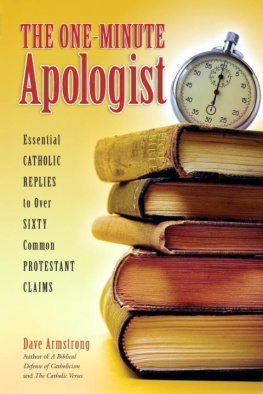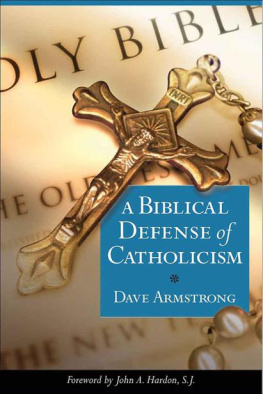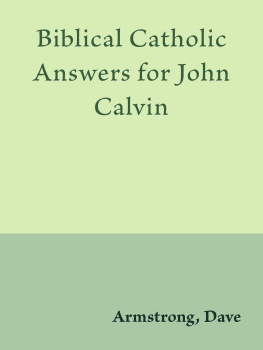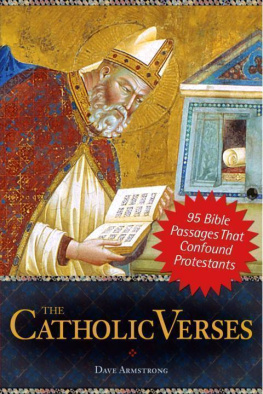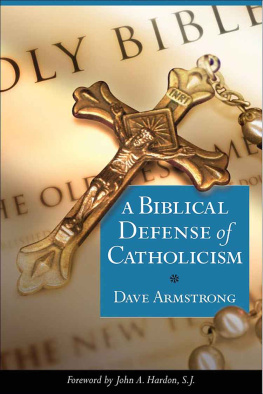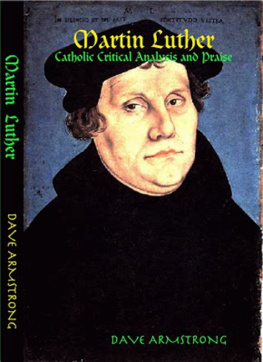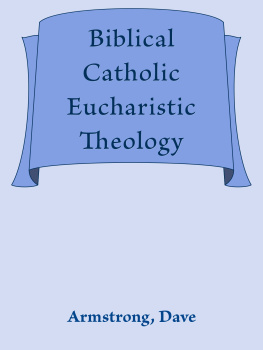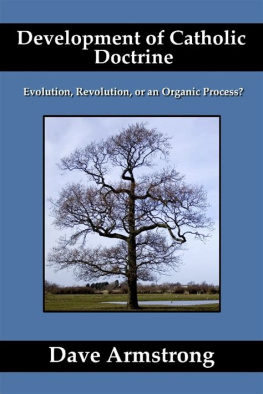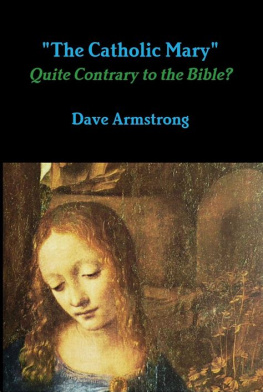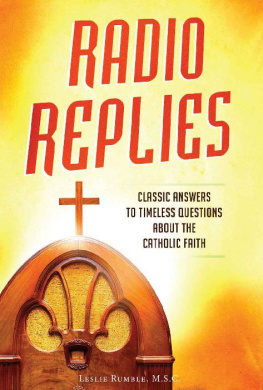A Biblical Defense of Catholicism
The Catholic Verses
Essential Catholic Replies
to Over Sixty Common Protestant Claims





"I have become all things to all men,
that I might by all means save some. "
1 Corinthians 9:22
................................. xiii
Common Protestant claims about:
Scripture
...................... 4
.................. 6
................... 8
................ 10
.................... 12
The Church
................ 16
................... 18
....................... 20
............. 22
......... 24
....... 26
...................... 28
........... 30
The Papacy
..................... 34
....... 36
........................ 38
............................. 40
................ 42
..................... 44
The Priesthood
.................... 48
.................. 50
................... 52
The Sacraments
..................... 56
...................... 58
................ 60
............. 62
............ 64
.................. 66
.................. 68
......... 70
........ 72
Salvation
.......... 76
................ 78
... 80
....................... 82
...................... 84
.............. 86
............ 88
.................... 90
............... 92
. 94
Theology of God
................. 98
........ 100
............... 102
................ 104
Mary and the Saints
...... 108
............. 110
................... 112
....................... 114
...................... 116
.......................... 118
....................... 120
..................... 122
Other Topics
......... 126
........................ 128
................... 130
............... 132
......................... 134
............. 136
..................... 138
............. 140
.............................. 143
This book continues what might be called a "Bible and Catholicism" trilogy (the previous two volumes being A Biblical Defense of Catholicism and The Catholic Verses).
The first was geared more toward a "catechetical" approach: a positive presentation of the basic teachings of Catholics that are different from most Protestant denominations, along with the biblical rationale for them (our proof texts, so to speak).
The second dealt with a similar theme, but with a twist: focusing on the ways in which Protestants have traditionally tried to deal with Bible texts that support Catholic teachings, and how these (oftentimes quite desperate) counter-explanations fail to meet the mark. This book was more "polemical" in its approach, featuring arguments against Catholicism, and our replies.
In this work, I have sought to show how Catholics can easily, decisively answer non-Catholic "garden-variety" objections to Catholicism. To do so, I have adopted a standard format (very vaguely reminiscent of St. Thomas Aquinas's Summa Theologica) throughout the entire book:
1. The topic title is stated in one or two lines. Remember - this is the Protestant objection to Catholic teaching, not my own assertion!
2. I provide the essential Catholic replies to the objection.
3. A common follow-up argument - "A Protestant Might Further Object" - and my counter-reply.
4. A relevant citation, often from a Protestant source.
This is all done in no more than two pages for each topic.
Once again I have happily been made quite aware of both the extraordinary riches of Holy Scripture itself (I discovered many "new" and exciting passages that gave further support to Catholic views) and how compellingly its teachings harmonize with the Catholic Faith. This is one of the somewhat unique blessings of the Catholic apologist. During the course of defending the Church and her teachings, the apologist sees more and more that our explanations make perfect sense and that opposing ones are weighed down and made implausible or incoherent by serious deficiencies (both biblical and logical).
As a former Protestant, I am particularly delighted by this (as I suspect is the case with other converts and also lifelong Catholics who have had a lot of contact with Protestants or familiarity with Protestant distinctives). For many years, I had assumed that Protestantism was "obviously" more biblically grounded than Catholicism.
My goal has been to provide readers with a handy, concise reference work to be used in the proverbial "encounter with an evangelist at the door" or at the workplace, or with non-Catholic relatives, and so forth. If and when a non-Catholic inquires about or strongly opposes some Catholic teaching, this "pocket book" might be of some practical use.
It should be noted here that my use of the word "Protestant" is very broad. In most cases, I have in mind traditional, conservative, or evangelical Protestants, but in a few instances, the term applies (in context) to more "progressive" strains of the spectrum, encompassing an array of belief that includes theologically liberal denominations and even quasi- Christian sects like the Mormons, Jehovah's Witnesses, and Unitarians.
A final personal note: I've been known, in some Internet circles, for writing lengthy tomes on my website and blog. I don't regret doing that at all, but I must say that I now more fully appreciate the importance and utility of short treatments as well, in order to provide effective Catholic replies to those arguments against our Faith that we encounter most frequently. I hope and pray that the present effort will be helpful in that way, and that my answers provide a lot of "meat" and substance within the brief format.

